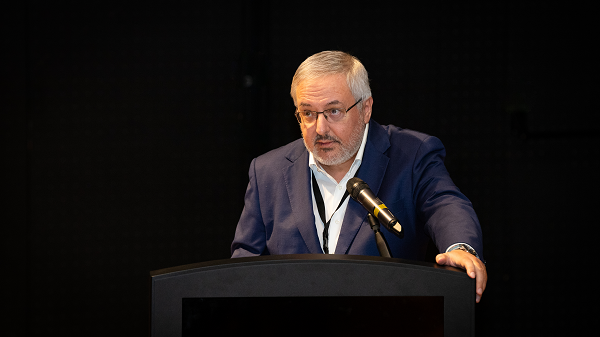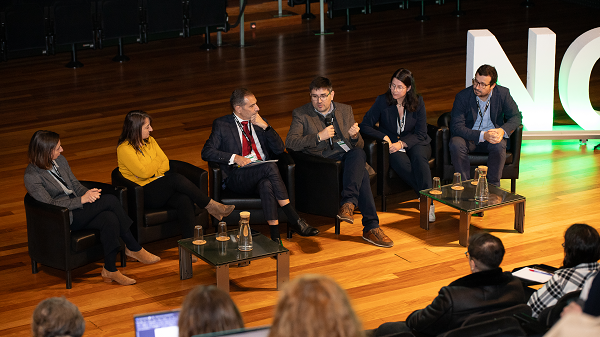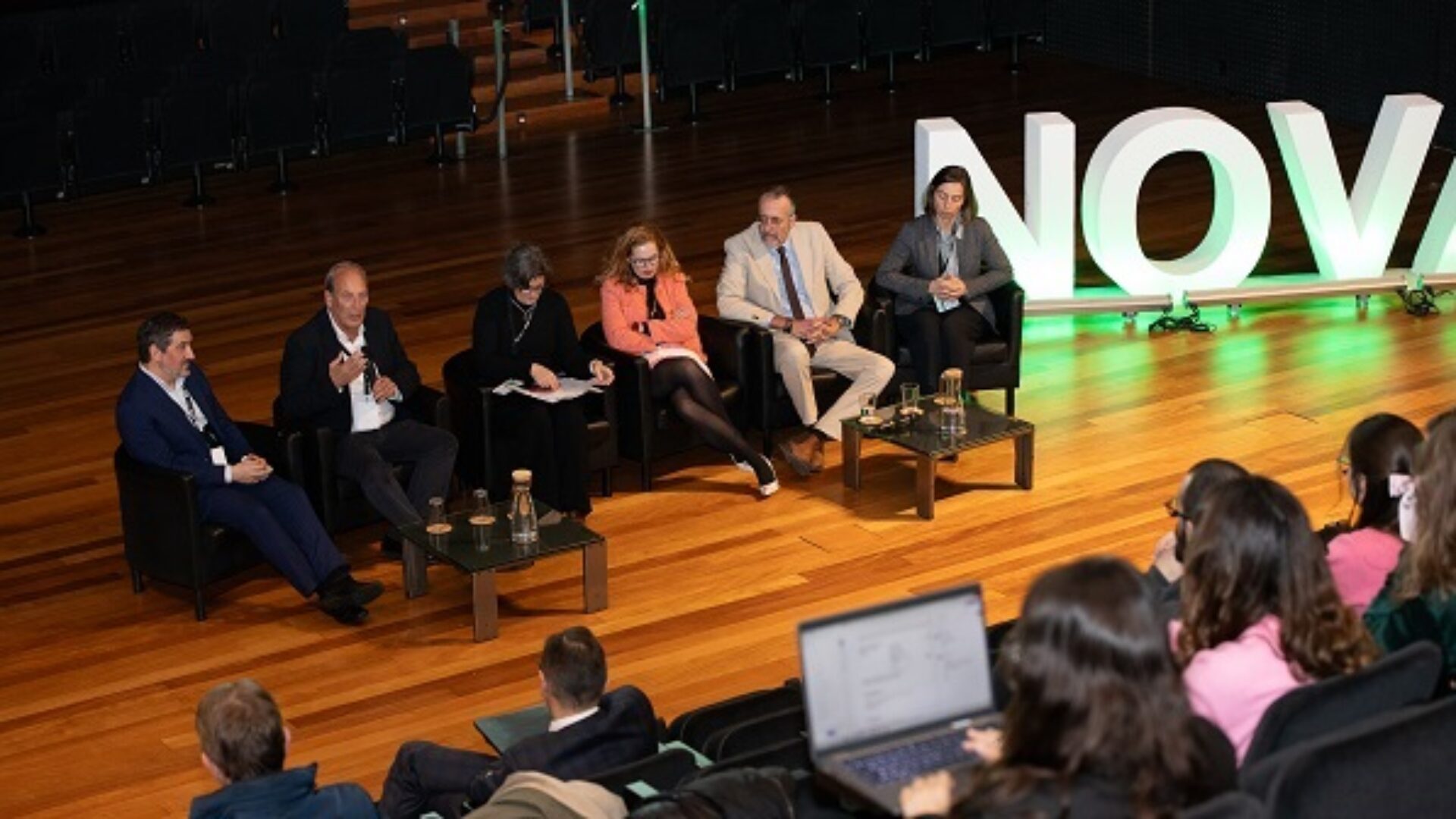The digitalisation of healthcare is an undeniable reality, but the human component remains essential. This was one of the key messages of the “Health and Digital Innovation” conference, held at the Rectorate Auditorium of NOVA University Lisbon, bringing together experts to discuss the challenges and opportunities of technological transformation in the sector.

At the opening of the event, Cláudio Soares, Vice-Rector for the NOVA Health platform, emphasised: “Today, practically all healthcare is digital. But we are also fully aware of the importance of keeping the human element throughout the process.” Meanwhile, José Paulo Santos, professor and researcher at NOVA FCT, highlighted the ethical challenges and the need to integrate technological tools effectively into the sector. “This revolution brings ethical challenges and the integration of tools that promise effective solutions for the future of the sector,” he added.
Sérgio Laranjo, researcher at NOVA Medical School, reinforced the inevitability of the digital path: “Digital Health is the only way forward,” reminding that this process began decades ago and raises legal and ethical issues, particularly regarding data sharing across multiple platforms. “The sky will be the limit, but we can go much further, and in 10 years we will be using completely different systems,” he noted. Quoting Michio Kaku, professor of theoretical physics at City University of New York, he highlighted that “the two major industries that are prime targets for digitalisation are Education and Medicine.” However, he stressed, “we must keep humans in the loop, because digitalisation should free us from bureaucracy to do our job better.”

The roundtable “The Role of Wearable Devices in the Personalization of Healthcare” reflected on how wearable devices can improve healthcare, provided they are accompanied by greater health literacy, as highlighted by Ana Londral, director of coLAB Value For Health. “A patient with access to such devices can generate data and only then be observed in a hospital setting. But for all this to work, we all need more health literacy, to avoid panic or overconfidence,” she warned.
In the afternoon, discussions focused on the challenges of Artificial Intelligence (AI) in healthcare. Vera Lucia Raposo, from NOVA School of Law, addressed legal issues, while Ana Londral stressed the need for effective communication protocols. Leonardo Vanneschi, from Nova Information Management School, pointed out how AI can improve diagnostics and prognostics, identifying details that might otherwise go unnoticed.
The event concluded with a call to train new generations of healthcare professionals in the use of AI. “Telling someone not to use AI is like telling them not to use the internet,” the panel concluded, reinforcing that technology should be an ally in improving healthcare. As Hugo Gamboa of NOVA FCT – who, along with Professors Nuno Neuparth and Leonardo Vanneschi, participated in the latest episode of the NOVAHealth Talks – UNL podcast dedicated to artificial intelligence in health – concluded, “the doctor will have the noblest role”.
At the end of the conference, Teresa Magalhães, a professor at NOVA’s National School of Public Health, where she directs the Specialisation Courses in Hospital Administration and Digital Health, highlighted some of the main challenges of artificial intelligence in healthcare, stressing the importance of data quality, its interoperability and also the need for regulation to ensure responsible use. But that’s not all: she also mentioned the importance of training – both for healthcare professionals who need to understand how AI works, and for IT specialists who need knowledge of medical data.
Teresa Magalhães also advocated for digital literacy, involving citizens in the adoption of these technologies, and reiterated the importance of digital health as a broader ecosystem, where AI is just one of many solutions. At the very end, concluded by expressing the hope that this conference would be a source of inspiration and that, at a future meeting, participants would be able to present concrete progress in their projects and contribute to solving real challenges in the healthcare system.

